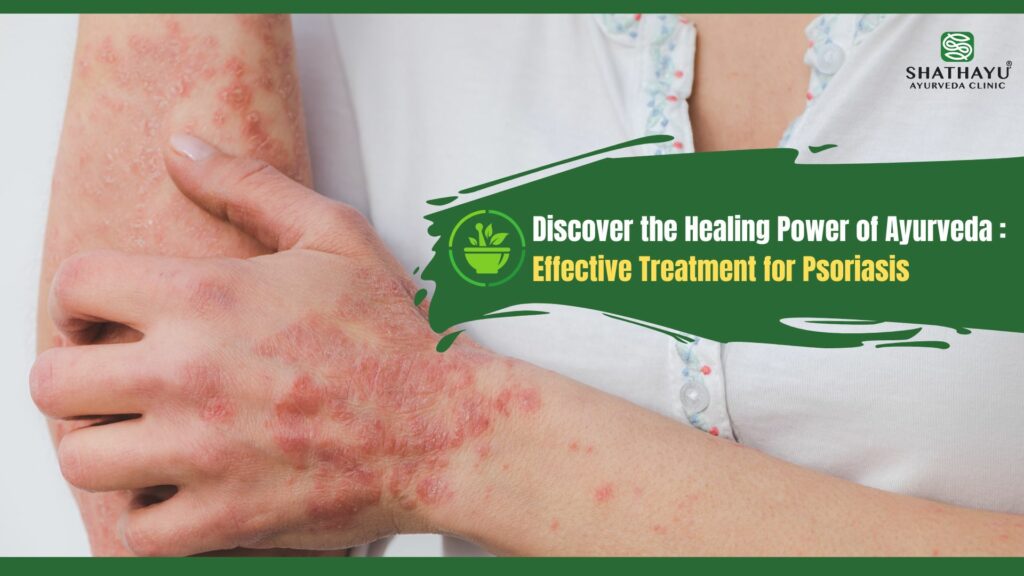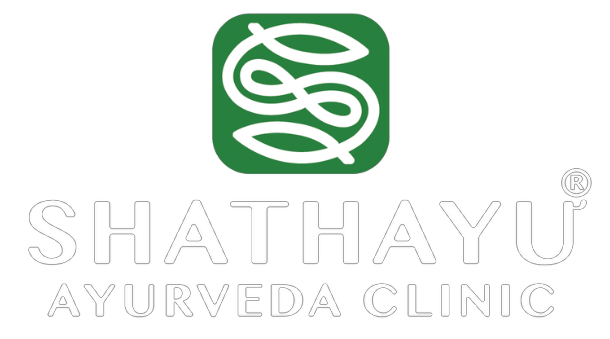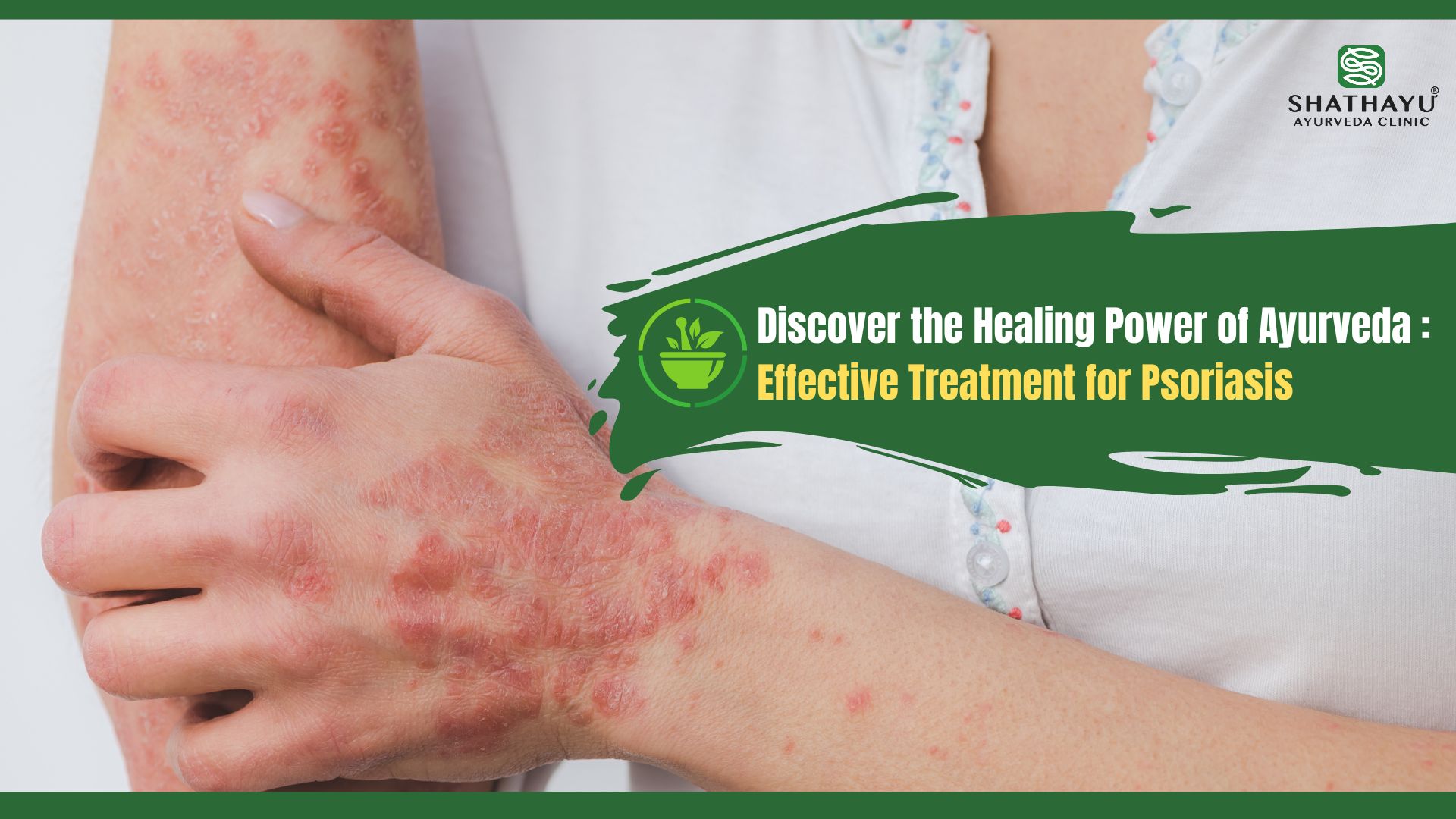
Discover the Healing Power of Ayurveda: Effective Treatment for Psoriasis
Psoriasis is considered an autoimmune disease. Psoriasis is caused by an overactive immune system, which triggers the excessive production of skin cells. The immune system mistakenly attacks healthy skin cells, leading to inflammation and the formation of red, scaly patches or plaques on the skin. This rapid turnover of skin cells also causes the accumulation of dead skin cells on the surface of the skin, leading to the characteristic silvery-white scales seen in plaque psoriasis. Although the exact cause of psoriasis is not fully understood, it is believed to be a combination of genetic and environmental factors.
How beneficial is panchakarma for treating psoriasis?
Skin being the largest organ, is frequently exposed to minute changes in the surrounding environment. Psoriasis is one such skin disease that has an effect on physical, psychological, and social aspects of life. There are several clinical cutaneous manifestations of psoriasis but most commonly the disease presents as chronic, symmetrical, erythematous, scaling papules and plaques. It is mainly immune-mediated. The features of Ekakushta mentioned in Ayurvedic classics and psoriasis mimic each other.
How Ayurveda overcomes Psoriasis???
A wide range of treatment principles is available in classics for Psoriasis. Panchakarma therapies like Virechana & Vamana play a crucial role. They are planned after a thorough examination of the patient. These purificatory procedures help in detoxifying the body and remove toxins like Liver toxins & colon toxins from the root, in turn preventing their recurrence. Virechana (controlled purgation) is a better option for the curative aspect as well as for the preventive aspect of psoriasis. Genetic susceptibility may also be prevented due to its purification action at the cellular level. Vamana is not merely a gastric lavage, it has the potential to disunite toxins from minute channels and eliminate them. It also acts on immunity and balances the endocrine system overall relieving the symptoms of psoriasis.
External therapies in the form of parisheka, where medicated liquids are poured over the body from a specific height for a stipulated duration of time, using medicated decoctions like Aragwadha Kashaya, Panchavalkala Kashaya, khadiraadi Kashaya etc. which can reduce the local inflammation, redness and dryness. External applications in the form of lepa can relieve the symptoms of itching and burning sensation and heal the damaged epidermis, example- Manjisthadi lepa & Chandanaadi lepa.
Leech therapy (Jaloukaavacharan) is given specific importance in classics for skin manifestations. The saliva of leech contains histamine, which causes local vasodilatation resulting in circulation of fresh blood making the tissue healthy. As a result, there will be new cellular division due to counter-irritant effect on the psoriatic lesions.
These are some of the commonly used Ayurveda herbs for psoriasis:
- Neem (Azadirachta indica): Neem is known for its anti-inflammatory and antioxidant properties, which make it useful in treating psoriasis. Neem is also believed to regulate the immune system, helping to reduce the severity of psoriatic symptoms.
- Turmeric (Curcuma longa): Turmeric is another herb commonly used in Ayurveda for its anti-inflammatory and antioxidant effects. It is believed to help calm the skin, reduce redness and swelling, and soothe itching and discomfort associated with psoriasis.
- Guggulu (Commiphora mukul): Guggulu is an herb used in Ayurveda to help remove toxins from the body. It is believed to help reduce the severity of psoriasis by purifying the blood and promoting healthy skin.
- Licorice (Glycyrrhiza glabra): Licorice has anti-inflammatory and immune-modulating properties, which make it useful in treating psoriasis. It is believed to help reduce redness, swelling, and itching associated with psoriasis.
- Aloe Vera (Aloe barbadensis): Aloe Vera has a cooling and soothing effect on the skin, making it useful in treating psoriasis. Its anti-inflammatory and moisturizing properties also help to reduce itching and dryness associated with psoriasis.
It is important to note that these herbs should be used under the supervision of a qualified Ayurvedic practitioner.
To conclude:
Panchakarma, the unique therapies of Ayurveda, attract the attention of people for the treatment of various disorders and also for their preventive and promotive effect. Psoriasis, being the most common skin diseases does not have a curative management through mere topical applications- Corticosteroids, Vitamin D analogues, Retinoids, and Light therapy- UVB broadband, PUVA, Oral medicines and injectables- Methotrexte, cyclosporins. A long-term treatment protocol involving panchakarma and oral medicines along with dietary changes ensures a complete improvement by addressing entities like- immunity, detoxification, skin rejuvenation, mental health and general wellness. Hence, Psoriasis can now be treated and prevented through the treasures of ancient seers- “Ayurveda”!! [/vc_column_text][vc_empty_space][/vc_column][/vc_row][vc_row][vc_column][vc_column_text]

